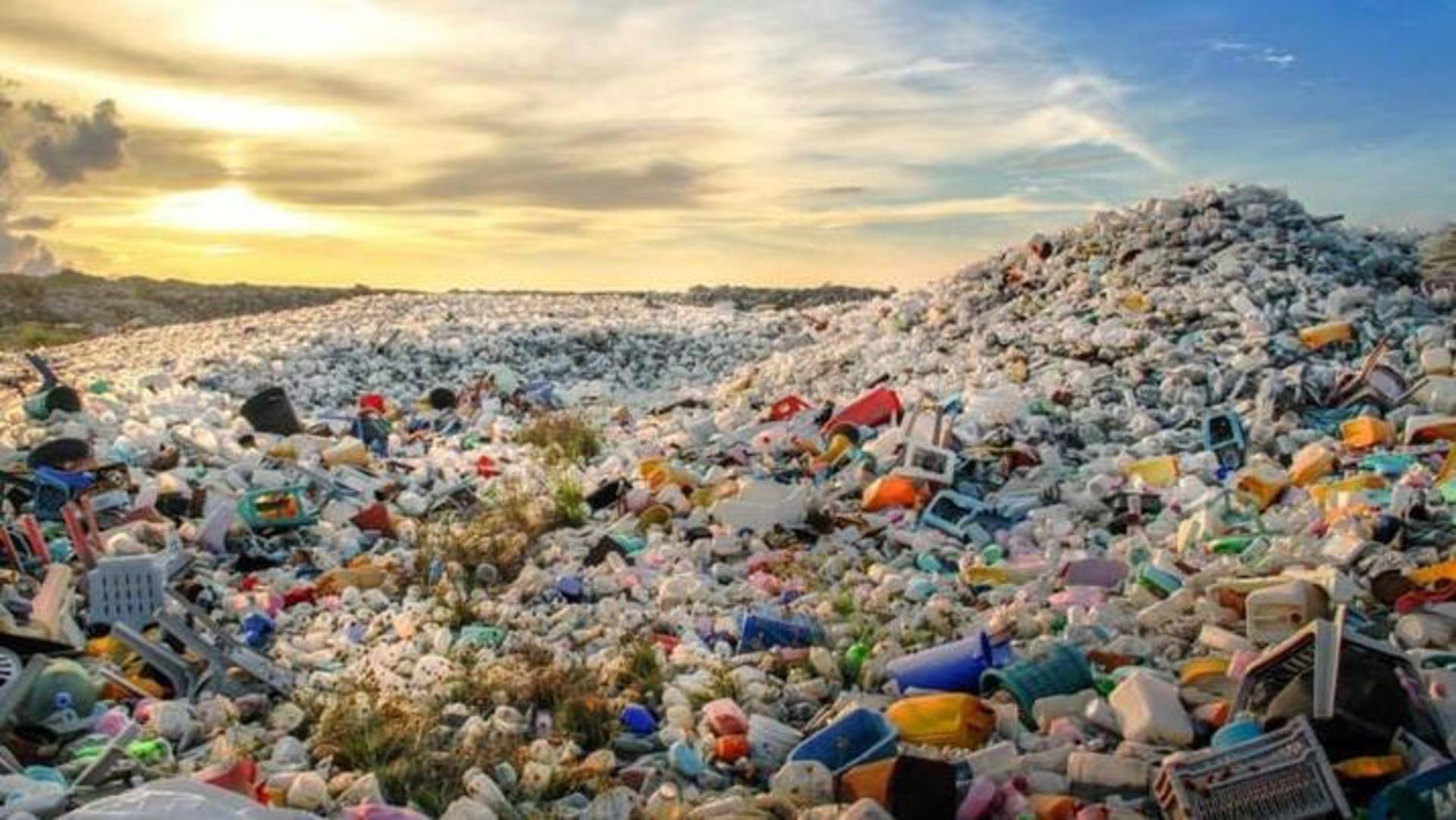
Plastic pollution can be reduced by 80% by 2040: UN
What's the story
Plastic pollution could be brought down by 80% by 2040, says a new report from the UN. To achieve the said target, we would have to make significant changes in government policies and the plastic industry. Ultimately, the measures undertaken could bring plastic pollution to 40 million tons in 2040, as opposed to 227 million tons if no changes were made.
Context
Why does this story matter?
Plastics are found almost everywhere on the planet now. From mountain summits to oceans and even in the air we breathe, microplastic contamination is concerning. Currently, two-thirds of manufactured plastic products are short-lived and eventually, end up as waste. However, the roadmap proposed by the latest UNEP (United Nations Environment Program) report could help us combat the increasing plastic problem.
Changes
The report emphasizes three pointers: reuse, recycle, and reorient
The first problem that has to be dealt with is "unnecessary plastics." The report emphasizes three major market shifts: reuse, recycle, and reorient. Promoting the reuse of plastic products like refillable bottles and bulk dispensers can slash plastic pollution by 30% by 2040. Removing fossil fuels subsidies and enforcing necessary guidelines can increase "economically recyclable plastics" from 21 to 50%.
Information
Replacing plastic sachets can further bring down pollution
Lastly, replacing items like plastic wrappers and sachets with products made from alternative sources, like compostable material, can bring down plastic pollution by 17%.
Outcome
Here are some ways to tackle the remaining plastic waste
Even after the said measures are followed, we would still have 100 million metric tons of plastics from single-use and short-lived products that have to be sorted annually by 2040. A few ways to deal with this are to set safety standards for discarding non-recyclable plastic waste, and by implementing measures to make manufacturers responsible for products that shed microplastics, and so on.
Official words
'UNEP report lays out roadmap to reduce human health risks'
"The way we produce, use, and dispose of plastics is polluting ecosystems, creating risks for human health and destabilizing the climate," said Inger Andersen, UNEP's Executive Director. "This UNEP report lays out a roadmap to dramatically reduce these risks through adopting a circular approach that keeps plastics out of ecosystems, out of our bodies, and in the economy."
Implications
The proposed changes could help save trillions of dollars
The changes will help curb the damage caused by plastics to climate, human health, and the environment and would help save trillions of dollars, per the report. An 80% reduction in plastic waste would prevent 500 million tons of carbon dioxide emissions per year. Further, the proposed "shift" could also lead to an increase of 700,000 jobs by 2040, specifically in low-income countries.